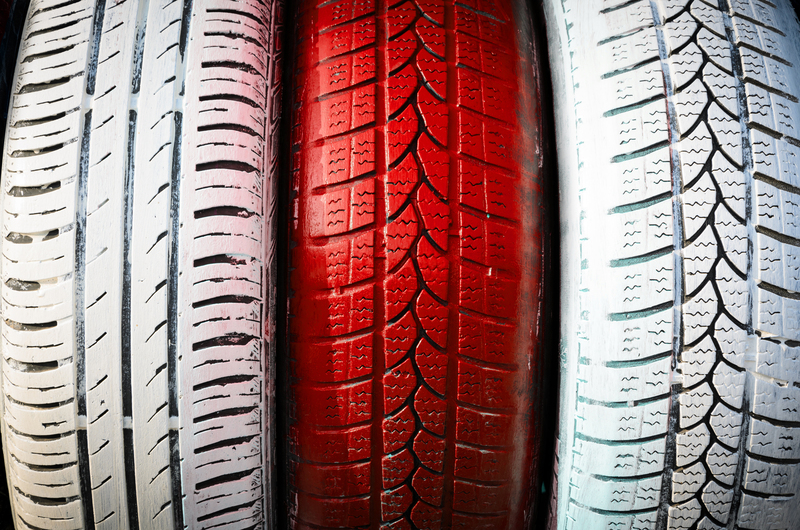Ways to Minimize Your Spending on Bulky Waste Item Removal
Managing the disposal of bulky waste items--furniture, appliances, large equipment, and other oversized materials--can be a surprisingly costly affair. These items are not picked up with regular household waste, and removal services often charge premium fees. Whether you're moving, upgrading, or simply decluttering, saving money on bulky waste removal is a smart financial move. This comprehensive guide explores affordable solutions, strategies to reduce costs, and practical steps you can take to efficiently manage your bulky item disposal needs.
Understanding Bulky Waste: What Qualifies?
Before jumping into cost-saving tips, it's crucial to know which items are classified as bulky waste. Typically, these include:
- Furniture (sofas, wardrobes, mattresses, bed frames)
- Large household appliances (fridges, washing machines, ovens)
- Garden waste and equipment (branches, old mowers)
- Construction debris (doors, bathtubs, windows)
- Electronics and IT equipment too large for standard collection
City guidelines vary, so consult your local council or waste authority to confirm. Recognizing what is considered bulky refuse can help you plan removal efficiently, avoiding unnecessary expenses.

Why Is Bulky Waste Disposal Expensive?
Several factors factor into the high cost of bulky rubbish removal:
- Special Handling: Large items often require extra manpower or equipment.
- Transportation: Transporting oversize items needs larger vehicles, raising fuel and labor costs.
- Recycling Fees: Some materials must be processed or recycled in a specific way, increasing the service price.
- Landfill Charges: Disposal centers may charge based on weight or volume, which adds up quickly with big items.
Proven Ways to Reduce Bulky Item Removal Costs
1. Try Free Council Collections
Many local councils offer free or significantly subsidized bulky waste pick-up services for residents. While there may be limits on the number of items or the frequency of pickups, scheduling these at the right time can save a considerable amount.
Tip: Book well in advance as council slots can fill up quickly, especially during peak moving seasons.
2. Donate or Give Away Usable Items
If your bulky items--such as furniture or appliances--are still functional, consider donating them to charity or giving them away via online platforms. This not only eliminates your disposal fees but also benefits someone in need.
- Charities like Furniture Banks, Salvation Army, or Goodwill often have free pick-up options.
- Use community groups on Facebook Marketplace or Nextdoor.
- List on freebie sites like Freecycle or Craigslist's "free" section.
3. Sell Items for Cash
Why pay to remove what you can sell for profit? Popular online platforms such as eBay, OfferUp, or Letgo make it easy to sell used bulky items. Even if your item is dated or damaged, someone may be willing to collect it for parts or refurbishment.
*Selling not only cuts your removal expenses but can turn a profit!*
4. Repurpose or Upcycle at Home
Think creatively! Repurposing old items can transform waste into practical, stylish additions to your home or garden. For example:
- Turn a broken ladder into a bookshelf
- Refurnish a worn sofa with a slipcover
- Use old doors as decorative wall pieces
- Convert an old fridge into garage storage
With a little DIY spirit, you'll reduce waste and avoid disposal costs.
5. Try "Pay As You Tip" Recycling Centers
Many municipal recycling centers allow residents to drop off bulky waste items for free or minimal cost. If you have access to a suitable vehicle (and a helping hand), this can be far cheaper than hiring a removal service.
*Check your local center's accepted items, proof-of-residence requirements, and restrictions before hauling your items over.*
6. Share the Cost with Neighbors
Hiring a skip or professional removal company comes with a flat rate--regardless if it's half-full. Coordinate with neighbors and split a single collection or skip hire to minimize individual costs on bulky waste disposal.
7. Time Your Removal Strategically
Don't rush! Prices for bulk trash removal can surge after holidays or during peak moving months. By planning ahead or choosing a less busy period, you may secure better deals or avail special council promotions.
8. Do It Yourself with Proper Equipment
If you're physically able, DIY bulky waste removal--renting a van or trailer--can be more cost-effective. Remember:
- Factor in van/truck rental fees, gas, and dumping costs.
- Always lift responsibly to avoid injury.
- Dispose only at licensed facilities to avoid fines.
*Many rental companies offer hourly deals--perfect for quick, local drop-offs!*
9. Group Items Together
Whether booking a collection with the council or a private company, always consolidate bulky items for a single pickup. Most services charge by the trip, not by item, so it's more economical to remove all at once rather than in multiple rounds.
10. Compare Quotes from Different Providers
Don't settle for the first removal offer you find. Use price comparison websites, contact multiple local haulers, or request quotes from both small and large providers. Some may offer price matching, discounts for advance booking, or off-peak rates.
What to Avoid When Disposing of Bulky Waste
- Illegal dumping: Never abandon bulky items in public places--it's unlawful and can result in hefty fines.
- Unlicensed haulers: Always verify that any private removalist is licensed for waste collection and disposal.
- Overloading skips: Exceeding weight or volume limits with skip bins can result in added fees.
Using Professional Bulky Waste Removal Services Wisely
If you need to hire a pro, maximize value by:
- Requesting clear pricing breakdowns – make sure there are no hidden charges
- Reviewing customer feedback for reliability and service quality
- Grouping waste types by materials (wood, metal, electronics) to avoid additional sorting charges
Also, some companies offer "man and van" service for smaller jobs, which is often cheaper than booking a full-scale team or skip bin.
Special Categories: Appliances and Electronics
Certain bulky appliances require extra care due to hazardous materials. Fridges, freezers, and TVs, for example, must be recycled at specific centers. Some manufacturers and retailers offer free or discounted haul-away services when you purchase a replacement.
- Ask your supplier about removal options when ordering new appliances.
- Check if your city has special electronics or appliance amnesty days for free drop-off.
- Research eco-schemes or rebates for recycling old electronics.
Eco-Friendly Alternatives to Save Money
Minimizing costs for bulky waste item removal can also be environmentally friendly:
- Participate in community swap meets to give unwanted goods a second life.
- Compost large organic yard waste instead of transporting it to the dump.
- Join recycling drives or art projects repurposing old materials.
*In many cases, upcycling or donating can save money and reduce landfill use--benefiting both you and the planet!*
Cost Breakdown: Comparing Your Options
| Removal Method | Typical Cost | Notes |
|---|---|---|
| Free Council Collection | $0-$45 (varies) | Limited slots, booking required, certain items restricted |
| Charity Pickup/Donation | Free | Items generally must be in usable condition |
| DIY Drop-Off | $15-$75 | Requires access to vehicle, possible drop-off fees |
| Professional Removal | $75-$200+ | Rates based on volume, location, accessibility |
| Skip Bin Hire (Split Cost with Neighbors) | $50-$150 (per person) | Ideal for joint clean-ups, cost varies by skip size |

Frequently Asked Questions on Bulky Waste Removal
Can I leave bulky waste on the curb for regular trash pickup?
Not usually. Most cities require a special bulky item pickup request, and leaving items on the curb can result in fines or complaints.
Are there restrictions on what's accepted in free or council collections?
Yes. Many council services will not take hazardous waste, construction materials, or more than a set number of items per collection.
Is it cheaper to rent a skip bin or call a junk removal company?
It depends on the amount and type of waste. For big, ongoing cleanouts, skips may be cost-effective, especially when splitting costs with neighbors. For quick, small jobs, a van removal service is often cheaper.
What's the most sustainable way to deal with bulky rubbish?
Reuse, donate, or recycle whenever possible! Only send to landfill the items that cannot be reused or processed safely elsewhere.
Conclusion: Save Money, Save the Environment
Minimizing your spending on bulky waste item removal requires planning, resourcefulness, and some creativity. From leveraging free pickup services and donating to local charities, to selling and repurposing at home, there are plenty of effective ways to keep costs low without dumping everything in the landfill. Next time you face a pile of oversized clutter, use these tips to keep your removal both economical and eco-friendly.
With a bit of preparation, you can clear your space and your conscience without breaking the bank!
